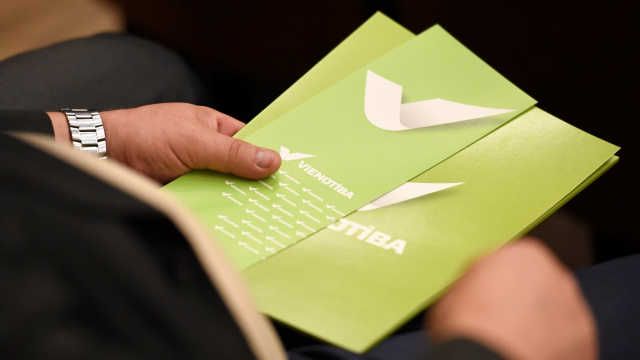The Control Service says it has received about a thousand reports over suspicious transactions in foreign digital banking accounts, with a popular scheme being the use of another person's data to open accounts and withdraw cash.
"We are monitoring the situation and are concerned not only with the 'money mules' used for fraudulent aims, but also with organized groups doing this. It's a growing risk and a criminal trend that's on the rise," Control Service chief Ilze Znotiņa  told De facto for a story appearing September 1.
told De facto for a story appearing September 1.
LTV tested the scheme. A journalist applied to become a Bolt driver and used Revolut, a digital payment card, to withdraw money. The €3 she earned during the test cannot be traced by the Latvian tax service, said De facto, and furthermore there are dozens of services like these available in Latvia so access would be impossible to control.
The State Revenue Service said that Revolut, registered in Britain, has no obligation to inform the tax service and that it's impossible to obtain information from the HMRC, as it does not collect information on Revolut clients, said Arnis Lībenzons, a representative of the State Revenue Service.
Cash withdrawal is likewise likely to be near-anonymous as no-one really knows who withdraws money from digital banking cards and the ends this cash is used for. This makes it possible to abuse these services in money-laundering and tax evasion schemes.
Probed about the anti money-laundering systems in place at Revolut, Soups Ranjan, the company's Head of Financial Crime Risk department had this to say to De facto:
"Revolut has a sophisticated and fully compliant suite of anti-money laundering systems, including customer due diligence and transaction monitoring. These systems are continuously improved by data science and machine learning and have a proven track record of uncovering instances of fraud. We report all instances of illegal activity to the relevant authorities."
Along with Revolut, digital banking companies such as Transferwise (registered in Britain), Paysera (Lithuania), and others are active inside the Latvian market.
Latvia's finance watchdog, the Financial and Capital Markets Commission, likewise said it sees risks in the use of digital banking services in Latvia. The commission said Latvian companies and banks can be fined for not meeting anti money-laundering standards, but that it has no option to take action against foreign entities.
While the commission has, for several times now, said that foreign digital banking firms apply insufficient scrutiny towards their clients, it is reluctant to name any specific company.





























